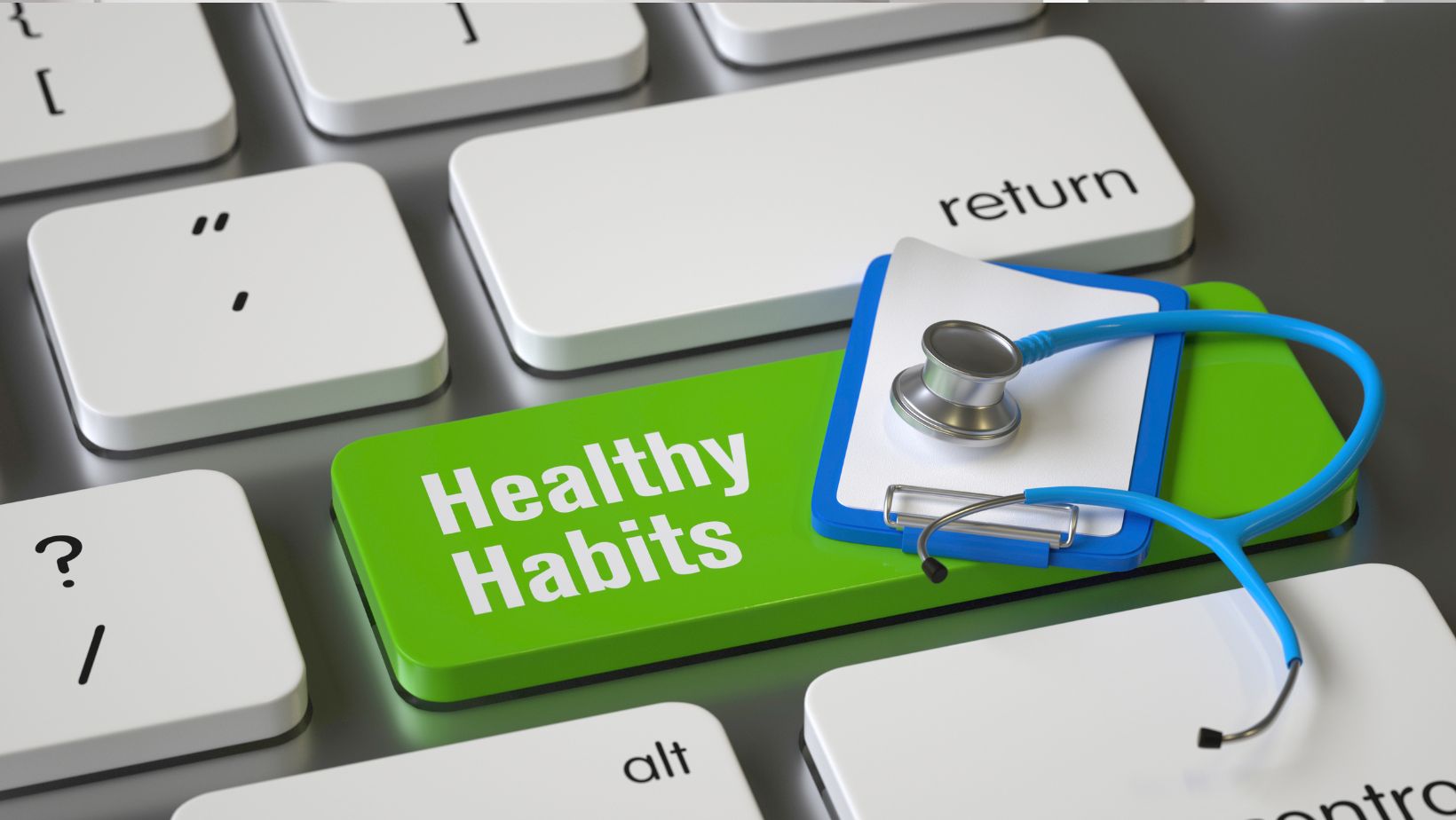Want a recovery that actually lasts?
Establishing healthy routines and behaviors while you’re in addiction recovery is about more than just feeling good. It’s about setting yourself up for a life where relapse is less likely and you have the energy to do the things you love and enjoy.
Sounds good, right?
Here’s the thing.
Most addiction recovery plans are missing something critical.
On their own, “don’t use” strategies don’t fill the void left by drugs or alcohol. In fact, they make relapse more likely.
Don’t believe it?
Here’s what science says… the rate of relapse in the first year of addiction treatment is as high as 85% if patients don’t have healthy routines and support structures in place.
Detox centers in MA help people get clean, but lasting recovery happens when people make foundational lifestyle changes at the same time.
Learn about healthy habits and why they’re important during recovery…
- Why Most Recovery Plans Are Incomplete
- Science of Habits in Addiction Recovery
- Essential Daily Habits To Prevent Relapse
- Building Your Personal Wellness Action Plan
Why Most Recovery Plans Are Incomplete
Addiction recovery is not just about abstinence.
The truth is your brain has spent months or years adapting to your addiction and creating cravings and patterns you have to deal with when you get sober.
If you don’t replace those negative habits and routines with positive ones, you’re left with a gap that nature is not going to let stay empty.
If you used to drink at night to wind down, what do you do now instead?
If you got high to cope with stress, how are you dealing with those feelings without substances now?
40-60% of people relapse in recovery, but the number is significantly lower when behavioral changes are addressed along with treatment.
The key is building daily routines that encompass physical, mental, and emotional health.
Science of Habits in Addiction Recovery
Your brain is an amazing organ.
It’s incredibly adaptable and capable of making changes based on what you do, how you think, and how you feel. While active addiction, your brain’s reward center gets flooded with dopamine from drugs or alcohol. This leads to strong cravings, which are hard to kick.
But wait…
Did you know healthy behaviors can trigger the same rewards and release feel-good chemicals into your brain?
Exercise, for example, releases endorphins and dopamine naturally. So does good nutrition. Sleep helps restore mental acuity.
When you string these habits together, you’re changing the way your brain responds to cravings and life stressors.
Exercise has been shown to lower the risk of relapse because it actually reduces withdrawal symptoms and the desire for drugs or alcohol. Plus, studies show regular physical activity promotes abstinence.
But you can’t go from couch potato to Ironman the day you get sober.
Start small and gradually increase the duration and intensity of your exercise regimen. You’ll build momentum over time.
Essential Daily Habits To Prevent Relapse
The most effective daily routines include five key components…
Morning Routine
The way you start the day impacts the rest of it.
Successful early recovery people typically have a morning routine that includes:
- Waking up at the same time every day, including weekends
- Drinking water before coffee or tea
- Doing some type of movement or stretching
- Practicing mindfulness or meditation
- Eating a nourishing breakfast that regulates blood sugar
Structure helps addiction recovery because chaos feeds addictive behaviors. A routine creates a sense of stability that makes it easier to keep patterns from resurfacing.
Nutrition
The majority of people entering early recovery from drugs or alcohol are nutritionally depleted.
Substances like alcohol interfere with how the body absorbs nutrients. Stimulants tend to suppress appetite. And most people living with addiction don’t get the quality sleep they need for optimal hormonal regulation.
Nutrition should emphasize:
- Complex carbohydrates to boost serotonin production
- Lean proteins to supply amino acids for neurotransmitter production
- Healthy fats for brain function
- Consistent meal timing to prevent blood sugar dips
Sugar cravings are very common in early addiction recovery, particularly for people who used to drink alcohol heavily. Your body is used to alcohol giving it energy fast and wants to keep replicating that blood sugar spike.

Sugar cravings are real in recovery from alcohol addiction and should be addressed in nutrition plans. Combat those urges with nutrient-dense foods and complex carbohydrates instead of fighting them with willpower.
Movement
Movement is medicine.
Exercise can take many forms. Anything that gets you moving counts.
Try to find activities you enjoy. Dancing, hiking, yoga, swimming, gardening, walking the dog… all of these are examples of “exercise” if you’re consistent about them.
Ideally, your movement is going to:
- Reduce stress and anxiety
- Improve sleep
- Release endorphins and dopamine
- Provide a healthy outlet for frustration
- Build confidence from accomplishing goals
If you’ve been sedentary for a while, it’s okay to start small. 10-15 minutes a day of whatever you like counts. Consistency is better than intensity.
Sleep
Sleep is a big part of recovery.
Your brain is trying to heal and rebalance itself. Sleep needs for people in recovery are usually a little higher than the standard 7-9 hours a night.
Good sleep hygiene practices are:
- Consistent bedtime and wake time
- A cool, dark bedroom environment
- No screens 1 hour before bed
- Avoid caffeine after 2 PM
- A relaxing bedtime routine
Sleep is disrupted during addiction and in early recovery. It affects your emotional stability and self-control, so it’s important to address sleep issues quickly.
Stress Management
Stress is one of the biggest relapse triggers.
Learning how to process difficult emotions and situations is critical. This might include:
- Mindfulness meditation for present moment awareness
- Journaling for processing thoughts and feelings
- Deep breathing exercises for acute stress
- Progressive muscle relaxation for tension
- Therapy or counseling for ongoing support
It’s important to have a toolkit with options so you’re not relying on a single coping mechanism when faced with life stressors.
Building Your Personal Wellness Action Plan
Creating long-term healthy habits requires intentional effort.
Assess where you are starting. Where are you at with your healthy behaviors? Where do you need to make improvements?
Then take it one piece at a time. Choose one area to focus on first.
Trying to change everything at once leads to frustration and overwhelm.
Maybe you focus on a morning routine before changing your eating habits.
Or maybe it’s the movement. Building a regular exercise routine that’s enjoyable is important for most people in recovery.
Small progress in one area begets more confidence and motivation to address others.
Tracking your progress helps too, whether you use a checklist, journal, or phone app. Progress leads to positive reinforcement.
The goal is not to be perfect. The goal is to move forward.
You’re going to have bad days when you miss a workout or binge on junk food. The key is not to beat yourself up and jump right back on track instead of giving up entirely.
Wrapping It Up
Healthy habits and daily routines are an important, but often overlooked, part of addiction recovery.
Most people can do the “don’t use” strategies, but when they don’t have a life to fill up all of the free time they’re eventually going to relapse.
The most successful people in recovery are the ones who create daily routines that support healthy physical, mental, and emotional habits.
Structure your mornings so you start each day well.
Make food choices that support a balanced diet with adequate nutrition.
Get regular movement into your day.
Practice good sleep hygiene so you’re getting enough quality rest each night.
Find healthy ways to cope with stress so life challenges don’t lead to relapse.
Remember, your brain can learn new, healthy habits just as easily as it learned addiction. Keep your expectations realistic, start small, and be consistent with your changes. Give yourself credit for every healthy choice you make.
